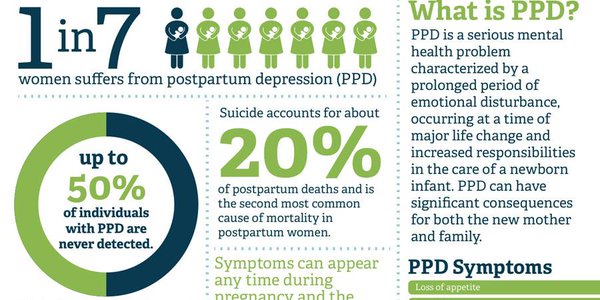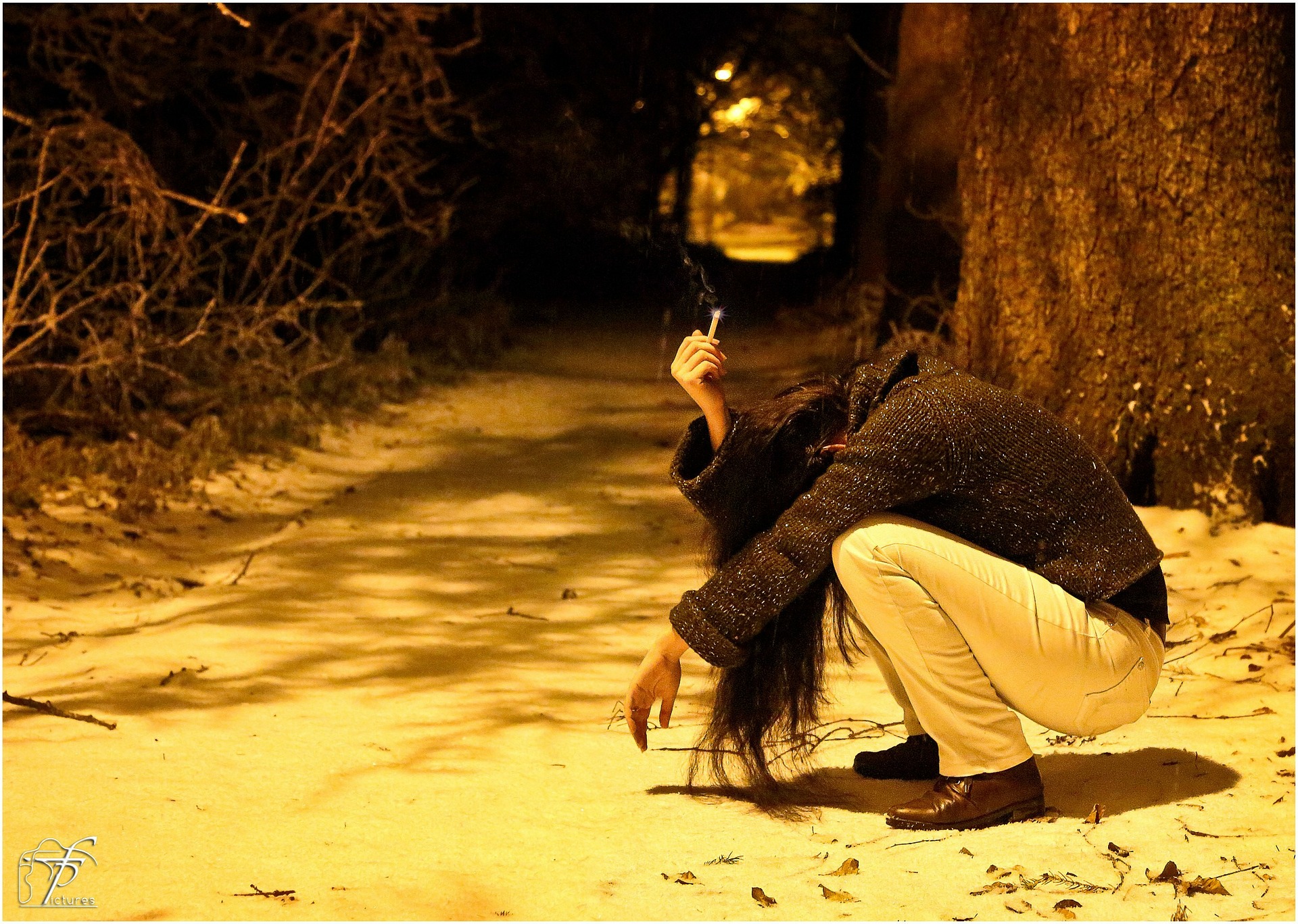
Pix Credit: https://www.hmhb-hawaii.org/information/postpartum-depression-ppd/
When Ella got pregnant after eight years of fertility treatment, she felt she would burst from the sheer joy of having a little human –her own child- grown within her. She was having her first child at 42, but she was healthy and happy to be a new mom. However, a few weeks after the birth of her son, Ella felt like her life was falling apart. She felt perpetually tired and simply wanted to curl up in bed and sleep. Soon she started having difficulty sleeping and felt like motherhood was a chore. She would cry when the baby cried, was irritable and would get very angry at the slightest thing. She knew within herself, something was not right. A quick internet search showed that she was suffering from baby blues, a lighter version of the more severe Post-partum depression. To her relief, she was not alone or going crazy as Baby Blues was pretty common among new mothers but more especially among older mothers.

pix credit: https://www.ahealthblog.com/postpartum-depression-quiz.html
POSTPARTUM DEPRESSION
Older motherhood comes with its challenges. Especially as the changes in the body gets tougher as age advances. The new challenges of motherhood, having a little dependent bundle of joy alters one’s life in many ways than expected. Sometimes, the happy hormones that assailed the body during pregnancy disappear as soon as the baby is born. Known generally as the baby blues, this feeling of depression affects many mothers irrespective of age, first timers or previous birthers. However, a general consensus holds that older mothers are more susceptible to depression after delivery than younger mothers.
A recent study from Canada observed a higher rate of Post-partum depression in first mothers who have children after the age of 40 compared to mothers between the age of 30 -35. The odds for depression was even higher in mothers aged 40-44. Although no real triggers were noted for depression in older mothers, certain contributory factors were identified. These include:
- The perception that older mothers have more difficult experiences with pregnancy and delivery.
- Mood Swings- Pregnancy and birth are intensely emotional. Multiple feelings of joy, happiness, tiredness, and anxiety are not uncommon.
- More difficult adjustment to motherhood and a newborn, after living independently.
- Lack of peer support and support groups due to deviation from social norms surrounding expected maternal age.
- Hormonal disruption- Pregnancy comes with a full load of hormones which may drop abruptly with delivery. Fertility treatment may tamper with hormones. Long and difficult fertility treatment can lead to post-delivery depression.
- Age- the adjustment to motherhood at an older age may be more difficult.
- Previous mental health issue- Mothers with a history of depression, anxiety disorder or bipolar disorder may develop post-partum depression.

SUPPORT FOR POSTPARTUM DEPRESSION
Baby blues is generally believed to be shorter and last two weeks or a month maximum. However, when the mood disorder starts to get severe and extends into months, it is known as Post-partum depression. Post –Partum depression is a serious mental health condition that needs urgent medical attention and support.
SYMPTOMS OF POST-PARTUM DEPRESSION
Symptoms of postpartum depression vary from person to person and one may not necessarily experience all symptoms listed. They include:
- Irritability or anger
- Mood swings
- Feelings of harming the baby
- Sleep disorder- excessive sleeping or insomnia
- Lack of interest in or affection for the baby
- Exhaustion and memory loss
- A sense of guilt and shame
- Suicidal thoughts.
COPING WITH POST-PARTUM DEPRESSION
Having a support group (like what we are creating with momat4ty) where you are free to express yourself and your feelings can be very helpful. Be patient with yourself. Love yourself. It is ok to feel a little overwhelmed. Ask for help when you need it and let others especially family and friends assist you for the time being till you feel more capable.

Regular exercise and a good diet are extremely helpful. Avoid junk foods and sugar which can lead to an insulin spike and a drop in blood sugar. Sleep more. Plan your activities and yourself to sleep when the little one is sleeping. It can be a little difficult to set the pace as babies tend to sleep more during the day and stay up at night to feed and play, but with time you will get the rhythm and adjust.
Wean slowly. Stopping breastfeeding can bring about hormonal changes. Doctors recommend weaning slowly. The use of medication and psychotherapy comes in when depression worsens and moves from baby blues to Post-Partum depression. However, more patience and self-love always come true for every mother struggling with the new role of mother and caregiver.
If you need someone to talk to or share your feelings, reach out to us on Facebook;
https://www.facebook.com/groups/momat4ty/
We will be glad to have you.
Follow our handles as Momat4ty will be hosting a house get-together, soon!
OMORODION MARTINA
